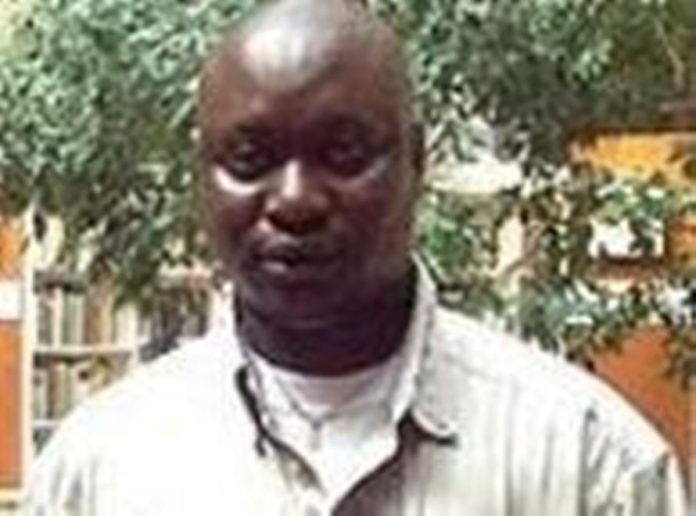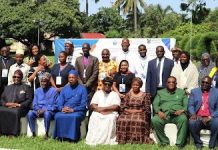By Yankuba Jallow
Yaya Dampha, a former reporter of the Foroyaa Newspaper while testifying before the TRRC on Monday, gave detailed recount of the contribution of Foroyaa in exposing human rights violations under Yahya Jammeh’s 22 – year rule.
He said: “Foroyaa was very critical to the then government and the editorial policy was strict wherein they would make sure that everything that comes out on the paper is factual.”
He added that people use Foroyaa as a place to lodge complaint for the unlawful arrest and disappearance without trace of their loved ones among other ills by the former regime.
He explained that people would prefer coming to Foroyaa than going to the police whenever they have issues with the former regime because it was very critical to the government of Yahya Jammeh. He said Foroyaa despite being a critical paper to the government; the paper was also careful about what they published.
“There was never a time when someone came and challenged Foroyaa for publishing inaccurate reports,” he said.
He said he was a human rights reporter and used to focus mainly on human rights violations by Yahya Jammeh’s rule.
He gave a detailed narration of some of his articles that Foroyaa published including the arrest of Ndongo Mboob, Muhammed Lamin Nyassi (former chief of Foni Kansala), Ousman Rambo Jatta ( a former candidate of the National Assembly who won his seat but was detained in Sare Ngai), arrest and detention of Chief Ebrima Manneh ( a former reporter of the Daily Observer) among others.
He put forward that Foroyaa was instrumental in publishing about rights violations. He said during the reign of Yahya Jammeh, the government had arrested many people and held them under detention beyond the constitutional limit of the Constitution which Foroyaa would always expose.
He said in December 2006, he saw Chief Ebrima Manneh together with one Master Tamba Fofana of Kudang School at the Fatoto Police Station being brought out and served food. He said Master Tamba was arrested and detained in relation to the allegation that he was a sympathizer of the opposition.
He said he and some members of Amnesty International went on tour on a fact-finding mission about the condition of the detainees and the working condition of the security forces. He said they met Ousman Rambo Jatta at Sara Ngai police station.
He said on their way to Fatoto, he and his colleague were arrested by agents of the National Intelligence Agency (NIA) who took them to the residence of the Divisional Commissioner of the Police. He said he managed to escape arrest and made several calls, informing people about their detention. He said those he called included Foroyaa Newspaper office and Amnesty International Dakar and UK Offices.
He said later at night, police commissioner Ebrima Cham ordered his men at Basse Police Station to put them in a cell. He said they spent the night at Basse Police Station. He said at around 2 am, he was picked by the police and locked in another room. He added that he was asked to make a statement to implicate the Amnesty officials with the promise that they will free him. According to the witness, he refused the offer and he was returned to where his colleagues were. He said they were denied food by the police.
He said on the following day which was 7th November 2006, they were transported to Banjul. He said when they arrived in Banjul, their cautionary statements were obtained and they were charged with spying. He indicated that on the following day, they were interrogated at the Serious Crime Unit and later transferred to the Interpol Unit. He said he was later granted bail together with his two colleagues from Amnesty International with a bail bond of $5000 each. He said they were reporting to the police every day until there came a day when they were told that their charges were dropped.
He said after receiving a series of information from people working in the government and the security apparatus that he was targeted, he left the country and stayed in Senegal.
He explained that he escaped being brought back to The Gambia by agents of the former Government who claimed being defenders of human rights. He said when he realized that those people were fake as he saw one with a pistol underneath his shirt, he shouted ‘thief’ ‘thief’ and they rushed into their vehicle and drove away. He said after this incident, the Senegalese government provided him with security until he got asylum to Sweden with his family.
He said he was born 15th May 1967 in Jarra Japineh in the Lower River Region. He joined the Gambia National Army in September 1988 where he served for six (6) years. He said he retired from the army in October 1995 and joined journalism in 1997. He said he joined the army with the intention of making it his career job, however after a few years in the army, he realized that he was in the wrong field.
He said he joined PDOIS in 1996 and became a party worker. He said in the 1997 PDOIS Congress, there was a resolution passed that party members should take responsibility.
“Party work led me into journalism,” he said.


















